Investment in Kurdistan: Detailed Investment Interview-Analysis
The latest figures right now show that more or less US $22 billion is the size and scale of committed investment; investment according to what we have in licenses.
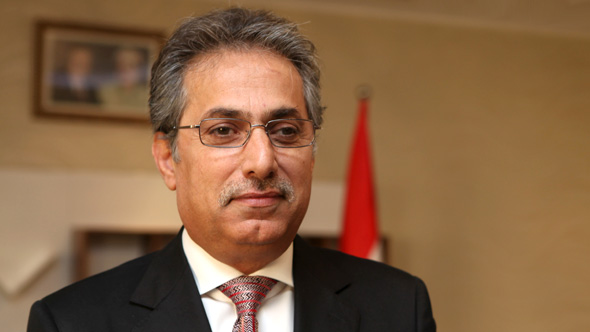
Kurdistan Investment Board claims that over US $12 billion has been invested in Kurdistan over the last 3 years. Other sources didn’t rank Kurdistan as a major destination for FDI. How are these statistics are calculated, what are the real numbers, what are the future prospects?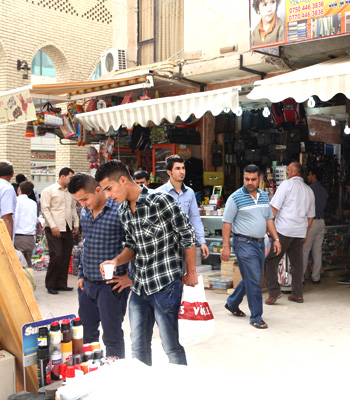
When you talk about investment there are some procedures and processes. Sometimes we make our calculations based on the commitment for the investment.
For example when we license, what goes onto the database will be the size of the investment as an invested amount, which is sometimes used to give some indications but not to give a real scale of investment. The latest figures right now show that more or less US $22 billion is the size and scale of committed investment; investment according to what we have in licenses.
The US $12 million you mentioned is the amount that is already implemented, the other is a commitment to the investment – projects not completed or on their way to be completed. 23% out of this is FDI, some of them are coming from pure foreign investment, some others are from joint ventures between local and foreign investors.
What are the main entry barriers to a new business that wants to invest here in Kurdistan?
The US $12 million you mentioned is the amount that is already implemented, the other is a commitment to the investment – projects not completed or on their way to be completed. 23% out of this is FDI, some of them are coming from pure foreign investment, some others are from joint ventures between local and foreign investors.
Investors look for some pillars when they make their analysis of investment climate. One is them is the legal framework. Kurdistan’s investment law was found to be the friendliest law for foreigners, with a high scale of incentives, flexibility in dealing with investors, giving good rights and position to the foreigners and protection measures.
Legal framework is a pillar that exists; there are some others which might not exist: a sophisticated banking system, and consequently the absence of an insurance system. These two are the major barriers for investors. Therefore the investors look for areas and activities with a very quick circulation of capital, where there are faster returns on investments and where their capital is safer. For example, an investor is doing a housing project for a maximum of 2 or 3 years; they invest their money, sell the units, take their money and go out. 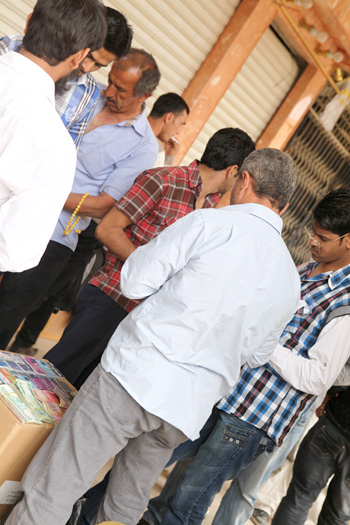
In addition to aforementioned, we also have some other barriers. As we are a region we cannot buy memberships in international institutions that are giving protection and guarantees to foreign direct investors.
This is an issue that we are working on with the federal government through the Ministry of Planning in order to secure some seats within these institutions for the Kurdistan region – even if it is through Iraq, we are ready to do it.
Despite all these, we have had sectors open to investors on a balanced way without giving priorities to them.
Now we are in a different position; we have identified our priorities and the sectors that we want to promote and the projects that will get more incentives, rather than giving the same incentives to every sector. We have identified the tourism, industrial and agricultural sectors to be our top priorities and we have identified projects in these sectors to be our targets.
We have identified the tourism, industrial and agricultural sectors to be our top priorities and we have identified projects in these sectors to be our targets.
So this will give a very different message to what we were doing before. Over the last period we were waiting for investors to come and give us their proposals and we proceeded with their proposals according to the regulation and investment law that we had. But now we will be giving our projects to the investors, telling them what projects are available, everything will be clear and the land will be ready.
They will only need to make their feasibility study, we have done research for them, so the only thing they need to do is to check the statistics and the research for the project.
According to the expectations and plans that we have we will change the image of investment in Kurdistan and the foreign media perception that we have right now. Alliance shares go to housing and oil and gas, with this strategy we expect that some other sectors will come up as competitors to other sectors like housing.
There has been a lot of investment going to oil and gas and housing, but there hasn’t been any investment into real productive sectors of the economy that will bring competitive advantage on the long run. Housing is consumption, it doesn’t add value to the country and one day Kurdistan will run out of oil and gas. How are you trying to push tourism and manufacturing?
Exactly, but it is not an absolute fact that we have limited our activities to housing and that we haven’t done anything with the other sectors. To give you some real examples, in 2006 when we established Kurdistan Investment Board, our average cement production was 200-300 tons per day while right now we are producing almost 30,000 tons per day and this is happening because of the investment law. In 2006 we had only 1 to 1.5 hours of power supply per day while right now we are producing almost 2,000 MW which cover 22-24 hours of power per day.
In 2006 we had only 1 to 1.5 hours of power supply per day while right now we are producing almost 2,000 MW which cover 22-24 hours of power per day.
In 2006 we didn’t produce a single kg or ton of steel or iron bars; right now we produce almost 2,500 tons per day. In 2006 we were importing every single bottle of mineral water from our neighbouring countries while now we cater almost 70% of our needs. In 2006 there wasn’t a single 5 star hotel in Kurdistan while now we have a few open and running and we have almost 8 new 5 star hotels under construction. All this is happening under investment licenses and investment law. 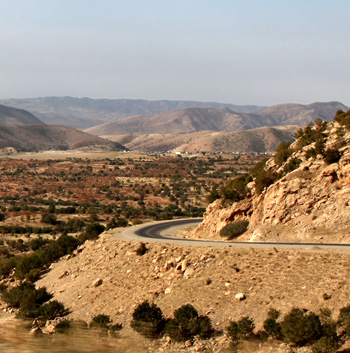
We have two large projects for dairy.
One of them is implemented by an Egyptian-Kurdish investor, the other is a British one: IK Development. Both with an excellent investment profile in terms of quality and quantity, so in 3 to 4 years’ time we expect to secure at least 40% of our needs for that kind of food items.
But again I agree that what we have done so far will not add much to the economy in the long run.
That is why we have rephrased our needs in a way that will translate into the support of the economic bases in the long run. For that we have started and prepared projects worth billions of US dollars in the tourism sector in the three governorates of Erbil, Duhok and Sulaymaniyah.
We have started very high profile industrial zones in Erbil, Duhok and Sulaymaniyah. We are very close to signing contracts or strategic agreements with master developers with very high profiles and professional backgrounds.
We have started very high profile industrial zones in Erbil, Duhok and Sulaymaniyah. We are very close to signing contracts or strategic agreements with master developers with very high profiles and professional backgrounds. We expect that as a result of these projects the industrial and tourism sectors will jump into a phase in which they will start contributing to a great extent to the economy of Kurdistan.
Is it a cause of concern to you that Kurdistan hasn’t been able to capture the aggregate demand of countries from the West?
Again, we are back to the investment climate. First of all, our major investors are from the Arab countries, which is a very strong sign for us that the idea of Kurdistan as a gateway to Iraq has been accepted by everyone. It gives a strong message to the international community that we are working hard to reconstruct the whole of Iraq through Kurdistan. Secondly, Turkey and other investors come here because of their familiarity with the environment and their recognition of the potential that exists in this place, as it is very similar to their own countries.
First of all, our major investors are from the Arab countries, which is a very strong sign for us that the idea of Kurdistan as a gateway to Iraq has been accepted by everyone.
The absence of a banking system brings very strong concerns to a European investor with regards to coming and working here. The absence of an insurance system might be another factor.
KRG is currently working very hard with the federal government because these two issues are mainly the federal government’s responsibility. We are now working hard with them in order to develop the financial policy and to develop the financial sector in a way that corresponds to the needs of the area and the economic grooming that we have had. This continues to be our challenge and objective for the future.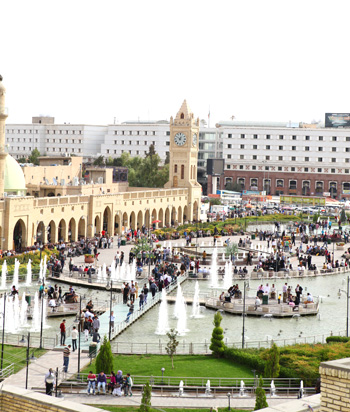
Kurdistan is a developing frontier market; one of the major issues is corruption and nepotism, the involvement of politics in business etc. The government is strongly pushing the transparency effort; do you feel these initiatives are effective?
Well, first of all the fact that we have admitted and recognised that there is corruption is in itself part of the solution.
To demonstrate our intention to overcome this very chronic and global issue we have approached PricewaterhouseCoopers to become our consultant for transparency measures, this is working parallel alongside the internal measures that we are taking.
We are now trying to make a comprehensive solution to the entirety of government operations of for each governmental institution. For example at the Kurdistan Board of Investment level, we have implemented some measures, first of all by giving more authority to the lower level staff members to make a division of duty one of the basics of this control. At the moment the Chairman of the Board has no authority to sign any license to any project; these authorities are released by myself (the Chairman) to the General Directors at the provincial levels.
However, we do recognise that corruption is an important issue and combating it is a priority throughout the government, regardless of the size or scale of a ministry or another governmental body.
This is to maintain the Board’s role of a senior management team that monitors the General Directors’ performance and ensures that they are implementing the articles of the law, providing incentives and assisting investors and coordinating them in a transparent way. In addition to this, we have also started a scheme of implementing auditing procedures and departments in each of our offices so we can have some filters for decisions and also to make sure we are accountable to the mandates.
I know that when some people read the World Bank’s report or when they read some websites that talk about corruption in Iraq as a whole, they will be quite or even too worried to be convinced about the measures that we are taking right now in Kurdistan.
However, we do recognise that corruption is an important issue and combating it is a priority throughout the government, regardless of the size or scale of a ministry or another governmental body. Everyone has been seriously instructed to work out a strategy within their organisation or institution to fight corruption and to have anticorruption tools to do so.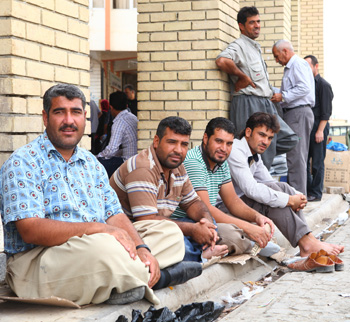
Why do you feel Kurdistan has one of the most progressive investment law in the Middle East?
The investment law was passed in 2006; it was the very first moment for us that we started investment and we began to involve the private sector in our development campaign. It was new to Kurdistan and to the rest of Iraq, which had just come out of a regime under which everything was produced by the state and the private sector was only taking part as a subcontractor.
Since 2006 we have started to think about drawing out very long term partnerships and strategic agreements with the private sector; to support the private sector in taking over some of the government responsibilities and to be a part of the decision-making process.
This all came in a time when investment was a new concept to this area, and we have given everything that we could; we have not denied any kind of rights to the investors. So we arrived at the point where we are now, the size of our licensed investments as a part of oil and gas is almost US $20 billion.
This has not been easy; it has been a real challenge. The challenges came from different areas, at that time we were telling our investors that we were ready for their proposals, that all sectors were open, that they mustn’t hesitate in getting involved in any sector: education, health, industry, agriculture, tourism and real estate. Now the situation is different, we have our priorities. Incentives will not be given out equally to all sectors.
This all came in a time when investment was a new concept to this area, and we have given everything that we could; we have not denied any kind of rights to the investors. So we arrived at the point where we are now, the size of our licensed investments as a part of oil and gas is almost US $20 billion.
We would be giving higher incentives to some more prioritised sectors and less to other sectors or in some cases no incentives at all, because competition has been very high so we need to slow down and give fewer incentives to certain sectors.
With this new law we have also overcome scenarios of potential corruption. Kurdistan Board of Investment will work more closely with relevant Ministries and the project assessment and criteria for assessment will be made jointly, while before this was just done by the Board of Investment. Right now we have different ways of filtering decisions coming out from the Board. We have also started or supported an institution which is the Kurdistan Investors Union, which covers several institutions that have full rights in the decision-making process, they also have a representative at the Supreme Committee for Investment chaired by the Prime Minister.
We have a high profile professional consultancy company from Germany: Roland Berger Strategy Consultants, who are working closely with us. One issue that they are concerned about is accountability and the team has been very helpful in planning a way to overcome the accountability issue while also implementing a teamwork approach.
So with this law we have indicated some protection measures for foreigners but we have also put in a clause that says the KRG should work really hard to buy membership to institutions that provide guarantees to investors. 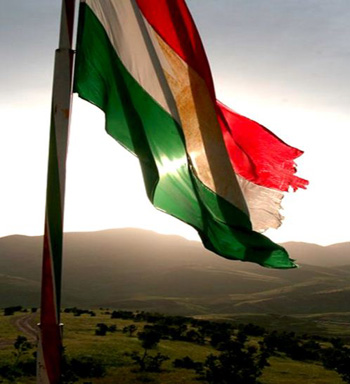
We have tried very hard to overcome the gaps identified not only by us as government but by the private sector, media channels, the opposition, reporters, economists and university faculties in order to have a comprehensive point of view that can provide solutions to all the issues that arose from the implementation of this law over 6 years.
How do you see the political risk in Kurdistan?
Let us categorise what you have said. The disputed areas and our relations with Bagdad are something that we have a benchmark for and we are sticking to it: the constitution. We accept and agree on each statement on the written constitution that was voted on by almost 80% of Iraqis.
Now for some reason some of the leaders of the federal government tried to have different readings for this vote and this is not acceptable at all. We are ready to claim our rights in the most civil way, to promote the rights of Kurds being a part of Iraq as Iraqis and to ensure that their rights are highlighted very clearly in the constitution and we are sticking to that.
When it comes to Turkey or Iran, we know and admit that there are problems and we have problems but we are also very willing to overcome these problems in a way that respects the rights of our neighbours and the rights of Kurds within the boundaries of Iraq.
And dependency might not be a crime if we talk about it, but we also know how the region can be managed, where our leaders can take responsibility and how the international community can respond to that, so we are careful of what we say. No one can stop us from dreaming. We try to maintain very good and strong relationships with all our neighbours. We are bringing Kurdistan to a stage which would be a model for peace-making and economic progress, a model of living together in a society that can contain everyone regardless of religion, colour or ethnicity.
Sometimes we might be influenced by some of our neighbours pushing limits in terms of their fear about what will happen in their own countries. We have nothing to do with that. We maintain a very good and strong relationship with Turkey, and we are proud of that. Turkey is playing a very important role in the economic development of Kurdistan and we are happy to have maintained such relationship with Iran and our neighbouring countries as well.
We have no reservations about working with any country who wants to be a part of this development, to make money and to provide services. So we have been working hard in maintaining different relationships with neighbouring countries. During the period of the greatest tension with Turkey we never stopped our common commercial activities or our intentions to give more contracts to Turkish companies. We left the politicians to do their work and we did ours. We try to protect these types of commercial relations from any kind of influence from politics. The same follows with Iran and any other country that has a potential to be part of this development.
Development of the Kurdistan region in turn develops the whole of Iraq. We need to see that the rest of Iraq is made secure and sustainable as this is a very important part of our own sustainability.
We are proud to be Iraqi and we are a part of Iraq until we feel that we are being taken as Iraqis.
Can economic prosperty lead to stability?
This is what we are trying to achieve. With Turkey it was a good and successful experience. In 2004 we signed the first contract with a Turkish companies to start implementing the Sulaymaniyah International Airport, which is one of our star projects now.
Erbil International Airport followed by another contract also implemented by a Turkish company. There are many Turkish companies in many major contracts and commercial businesses, but not in major investments – we need to differentiate that.
We do have a very good scale of investment from Turkish companies here, but we also have a huge number of Turkish companies working here on a contract basis through bidding processes which are financed by the government and the capital budget.